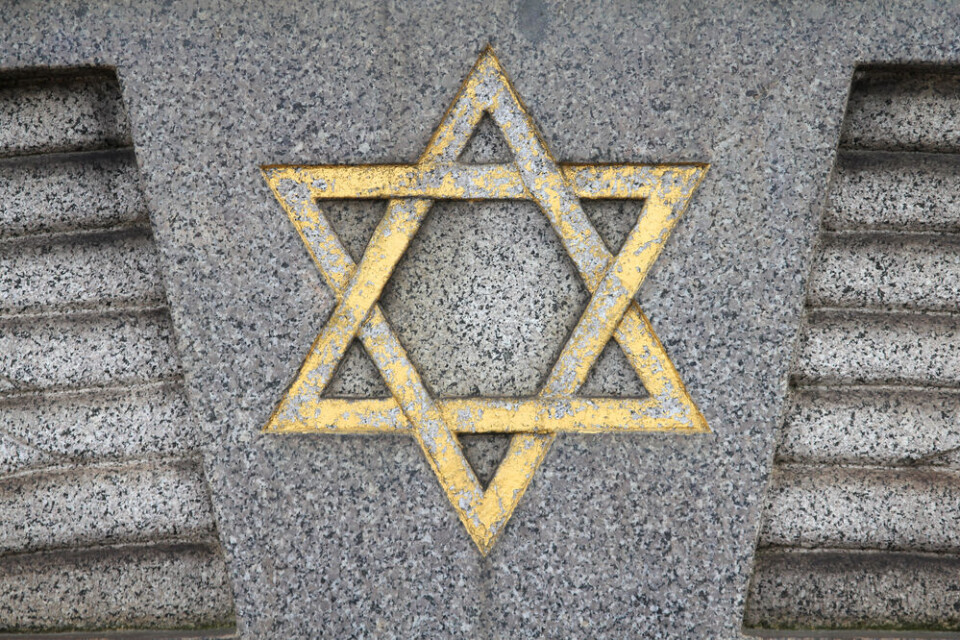-
Storm Pedro hits south-west France: trees uprooted and red flood alerts remain
Emergency plans activated in Bordeaux amid flood fears
-
‘It’s becoming intolerable’: homeowners in France move north to escape the heat
Heatwaves becoming more regular and intense
-
Occitanie copper phase-out ramps up – how it will affect residents
There are some simple steps you can take to prepare for the switchoff
Stars of David painted on walls of buildings in Paris and other towns
Investigations are ongoing. Mayors and Prime Minister Elisabeth Borne have uniformly denounced the acts as ‘anti-Semitic hatred’

Investigations have been opened after Stars of David - a Jewish symbol - were found graffiti-sprayed onto buildings in Paris.
The symbol - made using stencils - has appeared on walls in the centre and outskirts of the capital. The perpetrators’ intention or meaning is not yet clear in the context of the Hamas-Israel war in Gaza.
In a statement, the Paris prosecutor said it was inquiring into “damage to other people's property aggravated by the fact that it was committed on the grounds of origin, race, ethnicity or religion”. The offence is punished by up to four years in jail and a €30,000 fine.
Dans de nombreuses rues du 15e arrondissement, des tags antisémites ont été réalisés pendant la nuit.
Nous condamnons avec la plus grande fermeté ces actes qui nous rappellent les heures les plus sombres de notre Histoire.
Nous déposons plainte immédiatement et espérons que… pic.twitter.com/BeQpzPLi2t
— Anthony Samama (@AnthonySamama) October 31, 2023
Their locations include rue de l'Eure, rue Rémy-Dumoncel, and rue Hippolyte Maindon in the 14th arrondissement; rue Émile-Chaine and rue des Amiraux in the 18th, and the entry to the George Brassens park in the 15th. There were also some in the 10th.
“We have found almost 60 inscriptions, mainly in the 14th arrondissement,” said Nicolas Nordman, deputy mayor of Paris in charge of prevention and safety, to BFM Paris Île-de-France.
Anti-Semitic connotations ‘cannot be dismissed’
However, the prosecutor has said that the intention behind the graffiti tags is not yet clear. The symbols were made in blue paint, rather than the traditional yellow colour of the star, and were not found only on buildings associated with Judaism.
In a statement, the prosecutor said that the symbols were “manifestly indifferent to whatever the buildings housed”, and that it has “therefore not been established that this star has an anti-Semitic connotation, but this cannot be dismissed”.
‘Anti-Semitism is a crime’
The stencilling is reminiscent of the anti-Semitic acts committed during World War Two.
Carine Petit, mayor of the 14th arrondissement, was more certain. In a press release, she stated: “This act of stencilling is reminiscent of the methods used in the 1930s and World War Two, which led to the extermination of millions of Jews.”
The release called the incidents “anti-Semitic acts”, and Ms Petit condemned “anti-Semitism [being] plastered on our streets as in the darkest hours”.
The tags in central Paris come after similar symbols were found in the suburbs of Vanves and Fontenay-aux-Roses (Hauts-de-Seine), and Aubervilliers and Saint-Ouen (Seine-Saint-Denis).
Some of these also had writing saying: “From the sea to the Jordan, Palestine will overcome” which is considered a clear anti-Israel (or at least, a pro-Palestine) message. The stars in central Paris were not accompanied by any words.
The suburban mayors have also united in condemnation of the acts, along with Prime Minister Elisabeth Borne.
Speaking to the Assemblée Nationale yesterday, Ms Borne said: “On behalf of the government, I condemn these despicable acts with absolute firmness…to attack someone because they are Jewish…is to attack the very soul of the Republic.
“It is the duty of the Republic to protect all the Jews of France…all those guilty of these acts must be questioned and condemned…nothing can be tolerated, justified or excused.”
Karim Bouamrane, mayor of Saint-Ouen, said: “I firmly condemn these racist and anti-Semitic acts. The culprits must be arrested and judged with the utmost severity.”
Karine Franclet, mayor of Aubervilliers, called the graffiti “despicable acts”, and added: "Anti-Semitism is a crime.” She said: “They are demonstrably anti-Semitic.”
‘Anti-Jewish hatred must be fought’
Deputy mayor of the 15th arrondissement, Anthony Samama, told CNews: “Our vigilance towards anti-Semitic acts is total, and we are assuring the Jewish community in Paris 15th of our entire and full support.
“This unleashing of anti-Jewish hatred must be fought relentlessly, so that no Jew in our country fears for their life because they are Jewish.”
The group against racism and anti-Semitism, la Ligue internationale contre le racisme et l'antisémitisme (Licra), denounced the acts, and stated on X (formerly Twitter): “This wave of hatred that is rising is everyone’s business…it is on an unprecedented scale, and is eating away at the fabric of society, national cohesion and the values of the Republic.”
Cette vague de haine qui monte et s'affiche publiquement est l'affaire de tous.
Elle n'est pas la première depuis la Seconde Guerre mondiale mais elle est d'une ampleur inédite, gangrène le tissu social, la cohésion nationale et les valeurs de la République.
Faisons barrage https://t.co/ggzZgUuNsm— Licra (@_LICRA_) October 31, 2023
Similarly, Jewish students’ association l'Union des étudiants juifs de France said: "Some people want to terrorise French Jews using the methods of the 1930s. They must be quickly found and severely punished.”
Anti-Semitic acts have been on the rise in France since the attack by Hamas on Israel - and Israel’s subsequent retaliation. Justice Minister Eric Dupond-Moretti said that as many as 2,500 incidents had been reported nationwide, and more than 400 arrests made.
Related articles
Swastika on anti-pass protest placard investigated in eastern France
Simon Heffer: ‘Efforts to curb France’s anti-Semitism is not working’
French health pass protests: Who is the ‘qui’ mentioned on placards?
articles
























